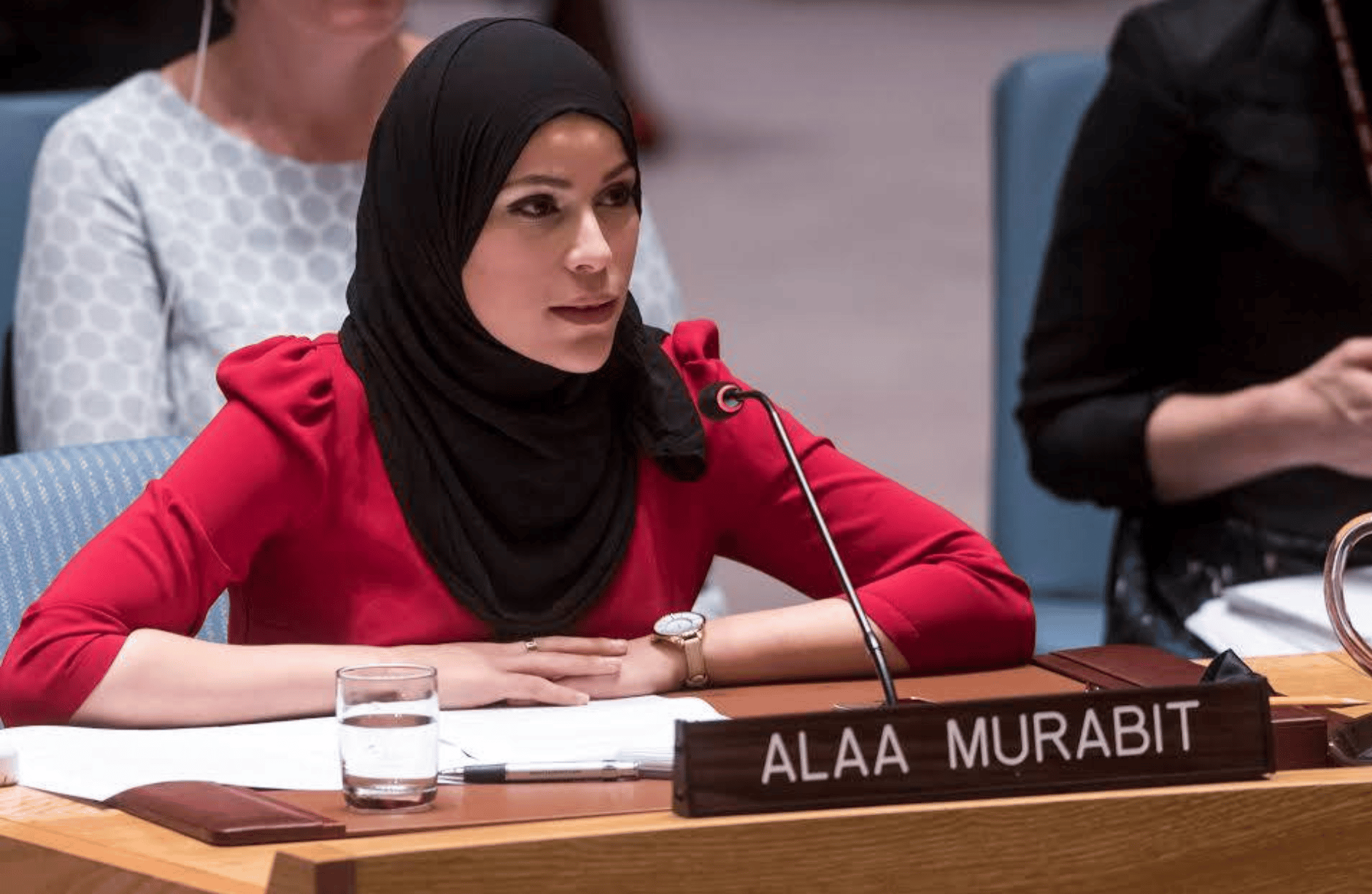Making Sure The Most Vulnerable Voices Can Be Heard – Dr Alaa Murabit

- Name: Dr. Alaa Murabit
- Job title: Global Sustainable Development Goal Advocate & High-level Commissioner on Health, employment and economic growth, United Nations. Director, Global Policy, Advocacy, and Communications at the Bill & Melinda Gates Foundation; Previously Founder and CEO of Voice of Libyan Women (VLW), Co-founder, Omnis Institute. Physician, Mom, Wife & Daughter
- Education: Exec MSc in International Strategy and Diplomacy from LSE IDEAS; Medical Degree from the University of Zawia, Libya; Harvard University Radcliffe Fellow
What inspired you to start a nonprofit organisation focused on assisting refugees?
VLW, the organisation I founded, primarily focused on advancing women’s inclusion and leadership in peace and security. We addressed the unique challenges of women affected by conflict and displacement, advocating for their rights, promoting their inclusion in peace processes, and providing them with necessary protection.
Recognising the unique challenges of conflict, our work encompassed refugees and internally displaced people, who often find themselves without support in the long-term aftermath of their displacement.
In the years since I’ve continued to be committed to amplifying the voices of the most vulnerable. My leadership roles, both in the Sustainable Development Goals and my current work, maintain a focus on increasing resource access for the most vulnerable, especially conflict-impacted women and children, reducing their inequalities, and providing necessary support for rebuilding their lives, from immediate relief to long-term healthcare, food security, education, and skills training.
Could you provide an overview of the services and support that your nonprofit offers to refugees?
Daily, I work to ensure all people have access to healthcare and the chance to earn a livelihood. This requires a holistic approach that goes beyond just providing immediate relief.
Much of our work involves advocating for policy change and fostering partnerships in critical sectors such as health, education, agriculture, and gender equity. We aim to channel resources and create systemic changes that ensure comprehensive support for all, particularly the most vulnerable groups like refugees and internally displaced people. By doing so, we strive to provide them with the necessary care and support they need to thrive.
What are some of the biggest challenges you’ve faced in supporting refugees, and how have you worked to address them?
Resources are often one of the biggest challenges; the reality for many refugees and internally displaced people is that they have intersecting vulnerabilities. More often than not, they are women and children, and the lack of access to resources and immediate support in the immediate aftermath of a crisis or conflict means they cannot rebuild in the longer term.
Another increasing challenge is the impacts of climate change and events, leading to record numbers of refugees, creating greater food insecurity, and increasing the likelihood of conflict and disease outbreaks.
In both these cases, we leverage our resources, partnering with other organisations and influencing governments and institutions to contribute to meeting health needs, including maternal and child health, routine immunisation, and disease outbreak response.
Lastly, navigating complex political and security environments is another challenge we address by working closely with local communities and traditional and faith leaders.
“I’ve continued to be committed to amplifying the voices of the most vulnerable.”
How did your business education help in your work?
My business education has taught me a robust understanding of strategy, negotiation, and financial management. These skills have been crucial in shaping our advocacy efforts, developing effective partnerships, and ensuring the sustainability and impact of our programs.
I also met one of my lead advisors and Omnis Institute co-founder at LSE IDEAS, Christina Myers. She now leads work on digital education to advance equity in learning across vulnerable communities, including refugees.
Could you share a success story or example that demonstrates the positive impact you have had on the lives of refugees?
My work advancing the sustainable development goals (SDGs) is arguably the most globally impactful; the SDGs have driven billions of dollars to interventions that directly impact refugees by addressing crucial areas like poverty, hunger, health, education, and gender equality. These goals aim to improve the lives of refugees by ensuring access to essential services, reducing inequality, promoting social, economic, and political inclusion, and providing access to justice.
Another would be the 1325 Global Study, of which I was a High-Level Advisor. Resolution 1325 is a landmark resolution adopted by the United Nations Security Council (UNSC) that acknowledged, for the first time, the disproportionate impact of war on women and the pivotal role women should play in conflict management, conflict resolution, and sustainable peace.
The 15-year study on Resolution 1325 illuminated several vital points:
- Despite the resolution, women and girls continue disproportionately affected by conflict and displacement, often facing heightened risks of sexual and gender-based violence.
- Displaced women often lack adequate access to healthcare, livelihood opportunities, and justice mechanisms.
- Women and girls have unique needs and contributions often overlooked in humanitarian responses and peacebuilding efforts.
Our findings underscored the urgent need for more targeted and comprehensive efforts to protect and empower female refugees. In the aftermath of the study, there has been increased attention and commitment by many international bodies, NGOs, and states to address these issues. This includes promoting gender-responsive humanitarian aid, prioritising the prevention of and response to gender-based violence in conflict, and ensuring refugee women’s participation in decision-making processes at all levels.
Interested in this series? You might also like this…
